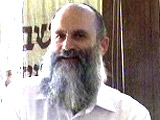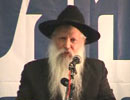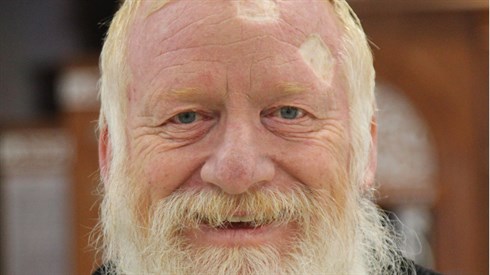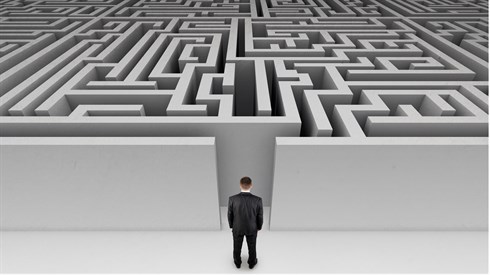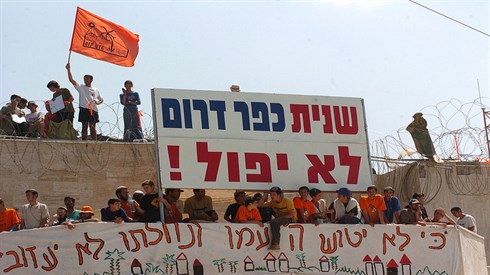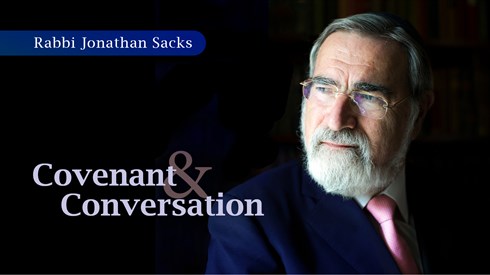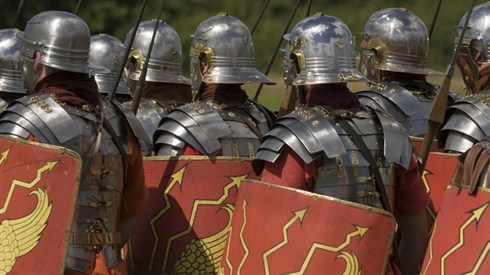The Shema paragraph (Deuteronomy 6:4-9) consists of three sections: 1) the foundation of faith, 2) the meaning of this foundation in our lives, and 3) instructions on how to instill faith into our lives.
1) From the first verse, "Hear O Israel, Hashem is our God, Hashem is One," we learn the foundation of the unifying belief of Israel, that Hashem Blessed Be He is the Master of everything, and there is no force in this world other than He. Even though it may seem to us that there are other distinct powers, separate from one another, Hashem, Who is One, sustains all life, and there is no one else.
2) The significance of this belief in our lives is that there is no other value in this world aside from the devotion to Hashem Blessed Be He. Hence, "Love Hashem your God with all your heart, with all your soul, and with all your might." The Chachamim (Berachot 54a) interpret these words: "With all your heart" – with both your inclinations: your good inclination (yetzer hatov) and your evil inclination (yetzer hara), – because one’s evil inclination must also be controlled to serve Hashem, whether by force or by transforming it into good. "And with all your soul" – even if it takes your life, for a person must be ready to give his life for his belief in Hashem. "And with all your might" – with all your resources; even a person’s money should serve as a basis and a means to serve Hashem, so that if it were demanded of a Jew to violate his religion or lose all his wealth, he would forfeit his money rather than defy his belief. Additionally, they interpret, "With all your might" – for each and every measure that Hashem bestows upon you, be grateful to Him very very much."
3) In the third section, the Torah instructs us regarding how to instill these foundations of belief in ourselves. First, "Put these words that I am commanding you today into your heart" and additionally, "Teach them to your sons." Even after a person learns the basic tenets of faith very well, if he does not repeat them to himself every day, life’s dealings and worries can cause him to forget them. Therefore we are commanded, "And say them when you sit in your house, when you walk on your way, when you lie down and when you rise up." From this we learn the obligation to recite Shema both in the morning and at night. Nevertheless, the Torah does not suffice with its recital alone, but rather adds the commandment to place these paragraphs of belief into our tefillin and to bind them on our arms and heads, as it is written, "And you shall bind them as a sign on your arm and they should be as frontlets between your eyes." We are also commanded to fix them firmly in the mezuzot on our doorposts, as it is written, "And write them on your doorposts of your houses and your gates." This is so that every time we enter and exit our houses, we look at the mezuzah and are reminded again of the foundations of Israel’s faith. Thus, the paragraph that discusses belief and the oneness of the Creator constantly guides us, in our hearts with Keriat Shema, on our bodies through tefillin, and on our property, meaning our houses, via the mezuzah.
4.The Second and Third Paragraphs
In the second paragraph, "V’hayah Im Shamo’a" (Deuteronomy 11:13-21), we learn about the value of the mitzvot, the reward for those who fulfill them, and the punishment for those who transgress them. If we love Hashem, serve Him with all our hearts, and fulfill all His mitzvot, we will be worthy of His blessing. The land will bring forth its crops, and we will live long lives, we and our children, on the land that Hashem promised to give to our ancestors and to us. However, if we, God forbid, stray from the path, Hashem will be angry with us, the ground will not yield its produce, and we will be exiled from upon the good land. We are then told to put tefillin on our arms and heads, and to post mezuzot on the entrances to our houses, thereby commanding us to deeply internalize these fundamentals of our faith not only by reciting Shema but by fulfilling other mitzvot as well. In the first paragraph, the emphasis is on our appeal towards the heavens, by dedicating all our powers to serving Him. In the second paragraph, the emphasis is on revealing Hashem’s autonomous rule in the world. The fulfillment of the mitzvot is an expression of the revelation of Hashem’s will in this world. Reward and punishment also confirm His supervision over this world.
In the third paragraph, "Vayomer" (Numbers 15:37-41), the mitzvah of tzitzit is elucidated. This commandment possesses special merit, for tzitzit have the power to remind us of all the mitzvot and to inspire us to fulfill them, as it says, "And you shall remember all of Hashem’s mitzvot and you shall perform them." As an indication of that, the mitzvah of tzitzit can only be performed during the day and not at night because the day reminds us of the clear revelation of Hashem’s word in the world. By revealing the light of the mitzvot and remembering them, we have the strength to overcome our evil inclination, as it says, "And you shall not seek after your heart and your eyes after which you go astray." The conclusion of the paragraph tells of the Exodus from Egypt, which we are commanded to remember both day and night. Just like tzitzit, which reveal the light of all the mitzvot, so too, the Exodus proved to us that there is a Leader in this world, and that the nation of Israel was chosen to reveal His word.
Thus, each of the three paragraphs is a continuation of and an expansion on the foundation of faith introduced by the verse "Shema Yisrael Hashem Elokeinu Hashem Echad." In the first paragraph, we learn the fundamental significance of belief, which is the one and only foundation of our lives. This is an extension of the words " Hashem Echad," ("Hashem is One"). From that, we accept upon ourselves the yoke of all the mitzvot in the second paragraph, which parallels the words " Hashem Elokeinu," ("Hashem our God"). In the third paragraph, the mitzvah of tzitzit appears and proclaims to us all the mitzvot and reminds us of them. At the end of the paragraph, the Exodus from Egypt, which showed the world that Hashem chose Israel and that He is the overseer and ruler of His world, is an expression of the words, " Shema Yisrael," ("Hear O Israel"). Thus the meaning of the Shema is capsulated in the very first verse, and explained in the paragraphs which follow. In the laws of Birkot Keriat Shema 16:1, we will learn that the berachot that the Chachamim instituted are also a continuation of and a supplement to the Shema prayer.
5.The Significance of the Exodus
The Egyptian kingdom, which enslaved Israel, was essentially the kingdom of materialism. Historical research verifies this. Among all the ancient nations, no culture was more materialistic than the Egyptian culture. The Egyptians denied the existence of a soul and did not believe in the afterlife. Only the human body and material objects were of importance to them. They therefore invested enormous effort into mummifying their dead and preserving their bodies. Even the great pyramids are none other than tombs for their bodies. Their immoral culture worked in conjunction with their beliefs, the main purpose being to satisfy bodily urges. As Chazal tell us, no other country was more absorbed in lusts than Egypt (Torat Kohanim, Acharei Mot, chapter 9). The nation of Israel represents the exact opposite, its main objective being spiritual aspirations.
The materialistic Egyptian nation ruled over Am Yisrael and enslaved the Jewish people in excruciating physical labor. It seemed that the great spirit that began to appear with our forefathers would not rise again. The material had prevailed over the spiritual, until the King of Kings Himself appeared in His glory and freed us from Egypt.
By taking us out of Egypt, Hashem proved to the world, for the first time, the ultimate power of spirituality and moral values. The Exodus illustrates the victory of spirituality over materialism. As much as materialism tries to enslave spirituality, in the end, spirituality will free itself from its chains. Just like Israel left Egypt triumphantly and in great wealth, so will every battle between the spiritual and the material ultimately end victoriously for spirituality.
And just as the nation of Israel, who gave the world Torah and ethics, was freed from the material bondage of the Egyptian empire, so too, each individual of Israel must free himself from the chains of materialism in order to discover spirituality and to connect to the Master of the world by performing mitzvot. Therefore, we are commanded to remember the Exodus every day and every night. In doing so, we recall Israel’s great moral and spiritual calling, thereby freeing ourselves from the chains of materialism to embrace eternal Divine truths.

How Does a Heter Iska Work?
Rabbi Yirmiyohu Kaganoff | 5770
After Amidah
Chapter Seventeen-Part Five
Rabbi Eliezer Melamed | 5775

Torah, Light, and Chanukah
Rabbi Avraham Shapira Zt"l | Kislev 5768



